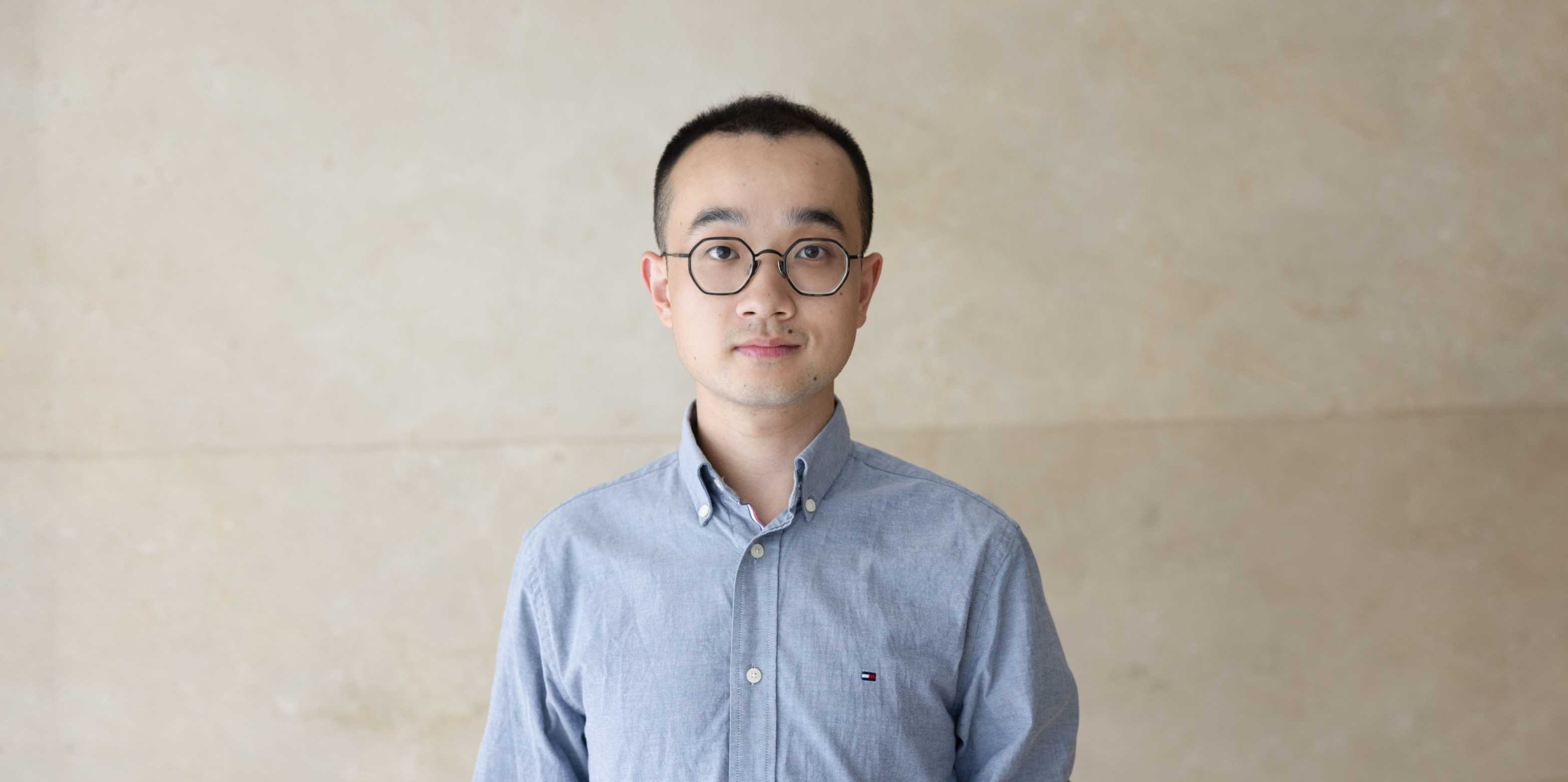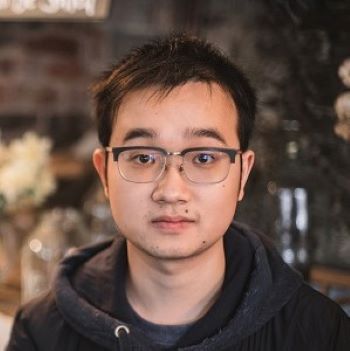Following your heart
Dr Chengyu Zhang has been a postdoc in the Advanced Software Technologies (AST) Lab of Professor Zhendong Su since the beginning of 2022. He joined the group after completing his doctorate at the East China Normal University (ECNU) in 2021. He had come to ETH Zurich before, as a visiting doctoral student in Professor Su’s group in 2018 and 2019.

What does the beginning of an academic career in computer science look like?
In a series of three interviews, a doctoral student, a freshly graduated Doctor of Sciences and a young postdoc from the department share their motivations and experience.
– This article is part of the "Young researchers in computer science series" –
1/3 Xenia Hofmeier – Learning the hard way
2/3 David Dao – learning about yourself
3/3 Chengyu Zhang – Following your heart
Why did you choose to study computer science?
I wanted to do something where I could connect theory and practice. Computer science is a bit of both, in between mathematics and engineering. I like working on theoretical and practical problems at the same time and combining them to explore advanced techniques.
What drove you to academic research?
I studied software engineering. During that time, I built my own start-up company – a popular social media platform in Shanghai. But I soon realised that running a start-up is more about business and advertising your product than it is about the technology itself. I wanted to work on something more technical, so I quit the company and entered a direct doctorate programme at ECNU. My goal was to learn more specialised skills and perhaps propose new ideas and techniques that I would later be able to transform into practice.
How did you get in contact with your current supervisor at ETH Zurich?
I contacted Professor Su during my doctorate. Our groups already had ongoing collaborations, and I came as a visiting doctoral student to work on a project with another student, Dominik Winterer, on a project called “Yin-Yang”. Our goal was to make verification softwares more reliable and powerful. I had a great time, and after I defended, I decided to come back to ETH and to the AST Lab for my postdoc.
Is it difficult to find a good postdoc position?
I think it depends on how much your work matches that of the professor. The main difficulty is finding a good fit: It is important to be working on similar topics or using similar tools.
Would you say that choosing the topic or the supervisor is more important?
When I choose my supervisors, I consider the people themselves rather than a specific topic. The topic is an opportunity to bring you together, but the most important thing is choosing a good mentor. By this, I mean finding someone who cares for their students and gives them a hand when they need help. They should have a vision about the research and guide you throughout your projects but also care about you and your career.

“The topic is an opportunity to bring you together, but the most important thing is choosing a good mentor.”Dr Chengyu Zhang, postdoc in the Advanced Software Technologies (AST) Lab of Professor Zhendong Su
What do you find the most challenging about being a postdoc?
The biggest challenge is getting used to the transformation from being a student to being an independent researcher. As a student, I only cared about pushing the research project forward. But, as a postdoc, I need to consider many other things. For one, I need to propose my own vision and directions for the project rather than following the professor’s instructions. I also need to supervise students, prepare and teach lectures, and start applying for funding.
It is a lot to learn, and a lot more to do than what I was used to as a doctoral student, but I think it prepares me well for becoming a professor in the future.
When did you decide you wanted to be a professor?
Initially, my motivation for doing a doctorate was to improve my technical skills to build a start-up. But during that time, I realised that I loved academic research, teaching, and supervising students. This was when I decided that I wanted to become a professor. Now I am open to different opportunities, both in Europe and in China, as I think each place has its advantages.
What does one need to become a professor?
To be mature enough. You need to make sure that you can supervise students and give good lectures. These are things that I am currently training to do. As a professor, you are responsible not only for a research project but for each student, the quality of their work, their graduation, and their personal and academic success.
Does ETH Zurich offer support or training opportunities to help young researchers get ready?
Yes. Both Professor Su and ETH support me a lot. I am very happy with the environment here. There are many career events and training opportunities on how to apply for funding, how to apply for faculty positions, and how to plan your career. These resources are very useful.
Have you already started applying to faculty positions?
Not yet, but I will soon. I think it is important to make sure I am ready for the many challenges of being a professor. Then again, I have spoken to my supervisor and other colleagues, and many of them said, in essence, that you never feel fully ready. At some point, you just have to jump in and learn things by doing them.
What will your next big challenge be?
Of course, applying for faculty positions will be one. More important, I would say, will be to define my vision for research. As a student, the supervisor points you in the right direction, and you just have to do it. As an independent researcher, you must set your own course and objectives. That requires exploring a little and getting to know your field very well.
What advice would you give students considering a career in academia?
Two things. The first one is: “Follow your heart and do what you want to do”. It is important to seize good opportunities and identify what is best for you rather than doing what other people are doing or are expecting you to do.
The second one is to create your identity as a researcher. It is good to focus on a research problem and build your research foundation as early as possible. This will be very helpful for your academic career.
“Create your identity as a researcher. It's good to focus on a research problem and build your research foundation as early as possible. ”Dr Chengyu Zhang, postdoc in the Advanced Software Technologies (AST) Lab of Professor Zhendong Su
Do you feel there is a lot of competition between academia and the private sector to recruit students?
I think it depends on the personality of each person. Personally, I like being in contact with young people, helping students and seeing them grow up and graduate. This is the reason I chose academia. Some of my friends prefer working on technical solutions that are directly applicable in the world, so they might choose to go into industry instead.
In my opinion, it is not really about competition, but about different people choosing different paths. As I mentioned before, the most important thing is to follow your heart rather than other people.